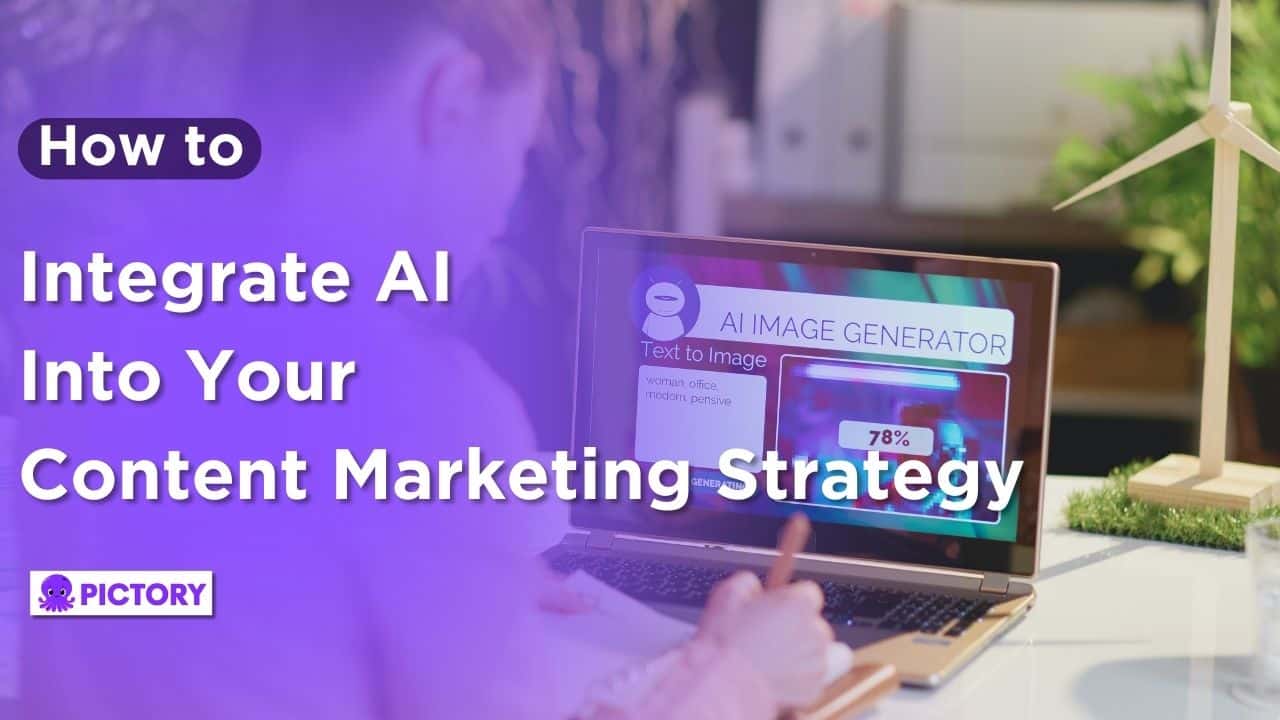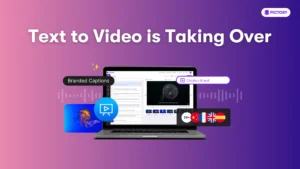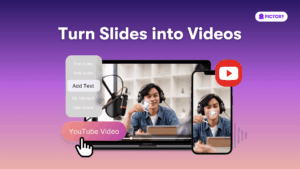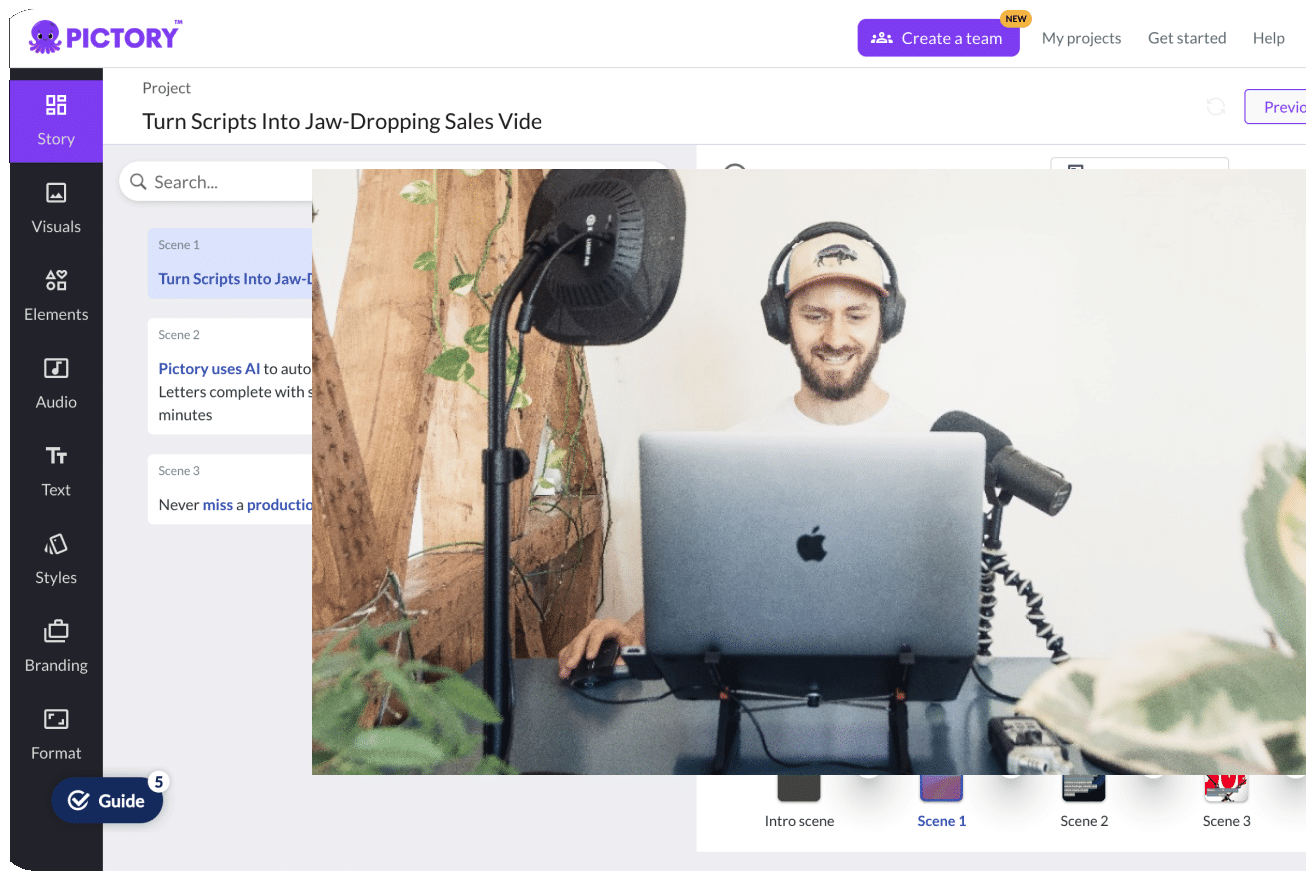Love it or hate it, artificial intelligence (AI) is here to stay, and the technology is only going to get more sophisticated.
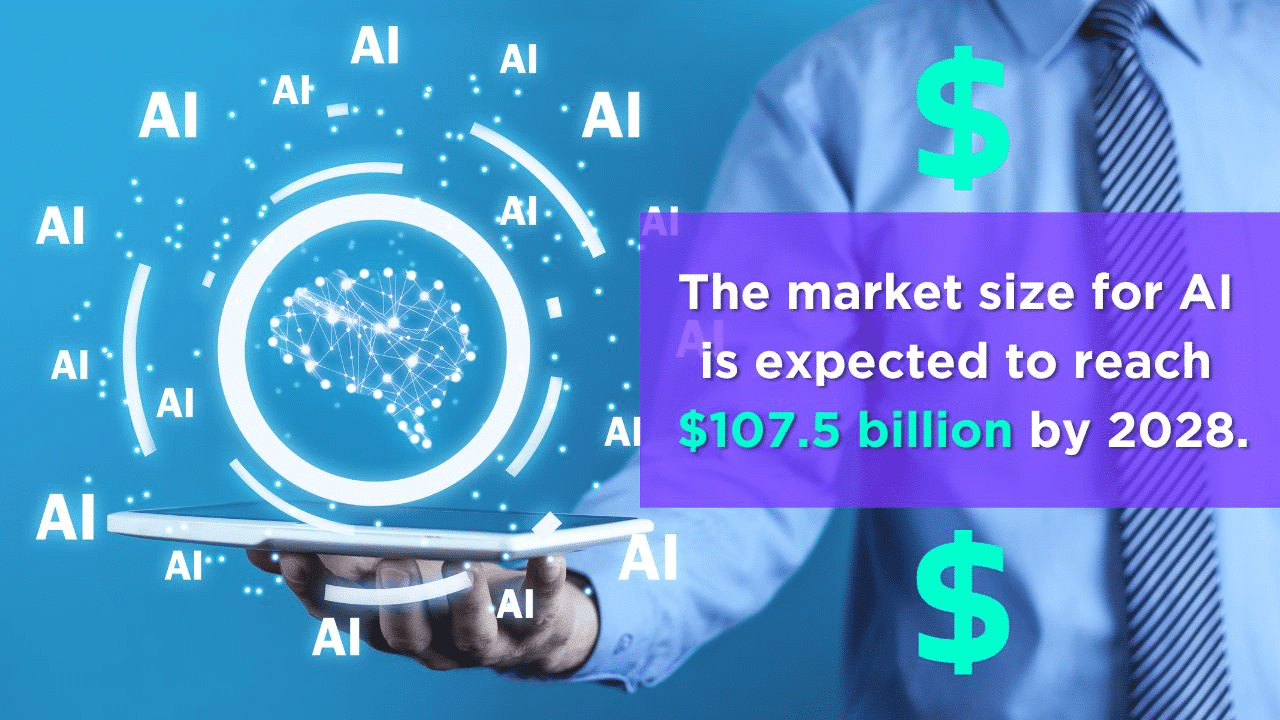
The market size for AI reached over $15.8 billion in 2021 alone, a number set to reach $107.5 billion by 2028.
Marketers are sitting up and taking notice as the possibilities bleed into their marketing strategies, brand management, workflows, lead generation, and customer relationship management efforts.
We could devote an entire article to the rise of AI in all industries, such as how AI is affecting the film and TV industry.
But today we’ll cut right to the chase with a focused deep-dive on AI in marketing.
In this article, we’ll answer the question on every marketer’s mind: How do I integrate AI into my content marketing?
Believe it or not, it’s possible to harness the power of AI to improve your content creation efforts from top to bottom without losing the human essence of your content.
Read on for all the details on AI marketing tools, tips, and trends for 2023 and beyond, or jump to any section below.
Article Summary
The Changing Marketing Landscape
Why Use AI-Powered Marketing Tools?
Incorporating AI Marketing Tools Into Your Marketing Strategy
Building a New Content Strategy Around AI
What to Do Next
The Changing Marketing Landscape
A little more than a decade ago, content marketing looked different, and it will continue to change as the years go on.
The vital point to remember is that content marketing is a living, breathing mechanism for engaging a target audience via valuable, relevant content.
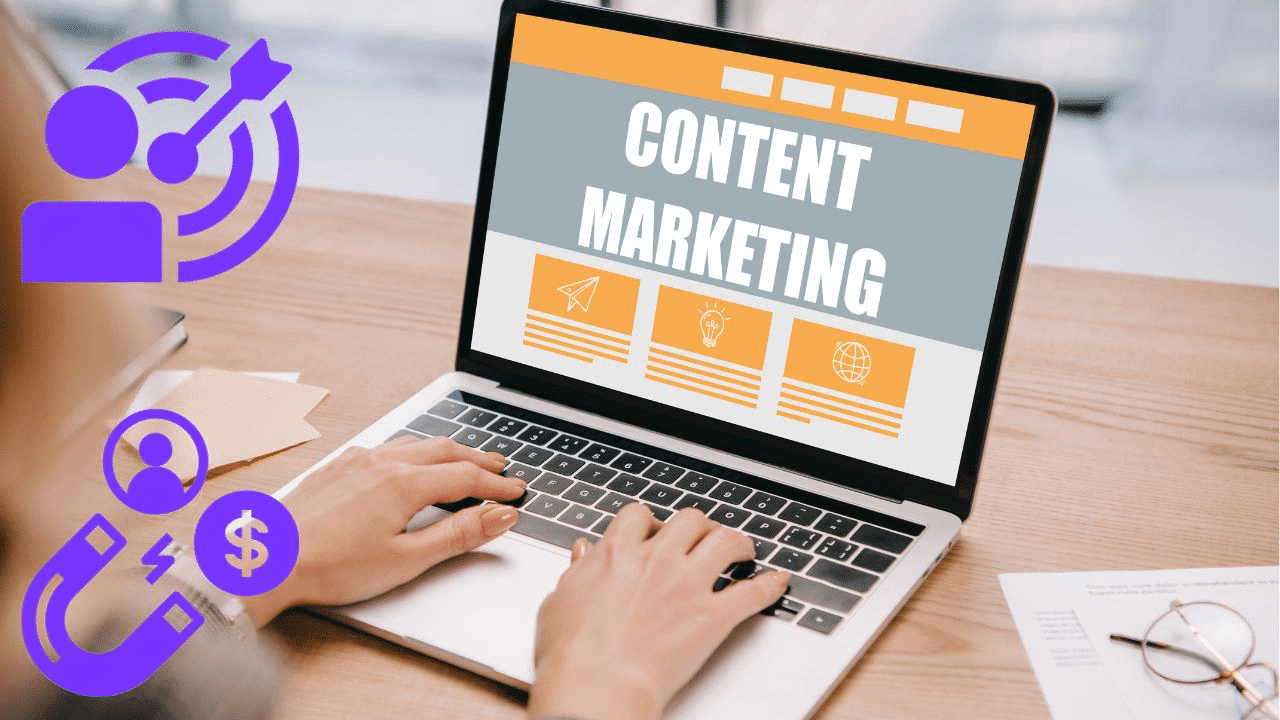
Expect that 10 years from now, content generation will look vastly different still, thanks to new technologies.
Currently, the technology of note is AI, and marketers cannot afford to ignore its influence in the content marketing and search engine optimization (SEO) realms.
A Brief History of Machine Learning
To understand where we’re going in content marketing, let’s take a brief look at where we’ve been.
Prior to 2011, typical content marketing strategies revolved around distributing keyword-rich content — or even “keyword stuffing” articles with an abundance of search words and phrases in hopes of attracting search traffic.
Following its landmark Zero Moment of Truth study, Google learned that consumers were making buying decisions before the sale — in other words, prior to making an in-store or online purchase.
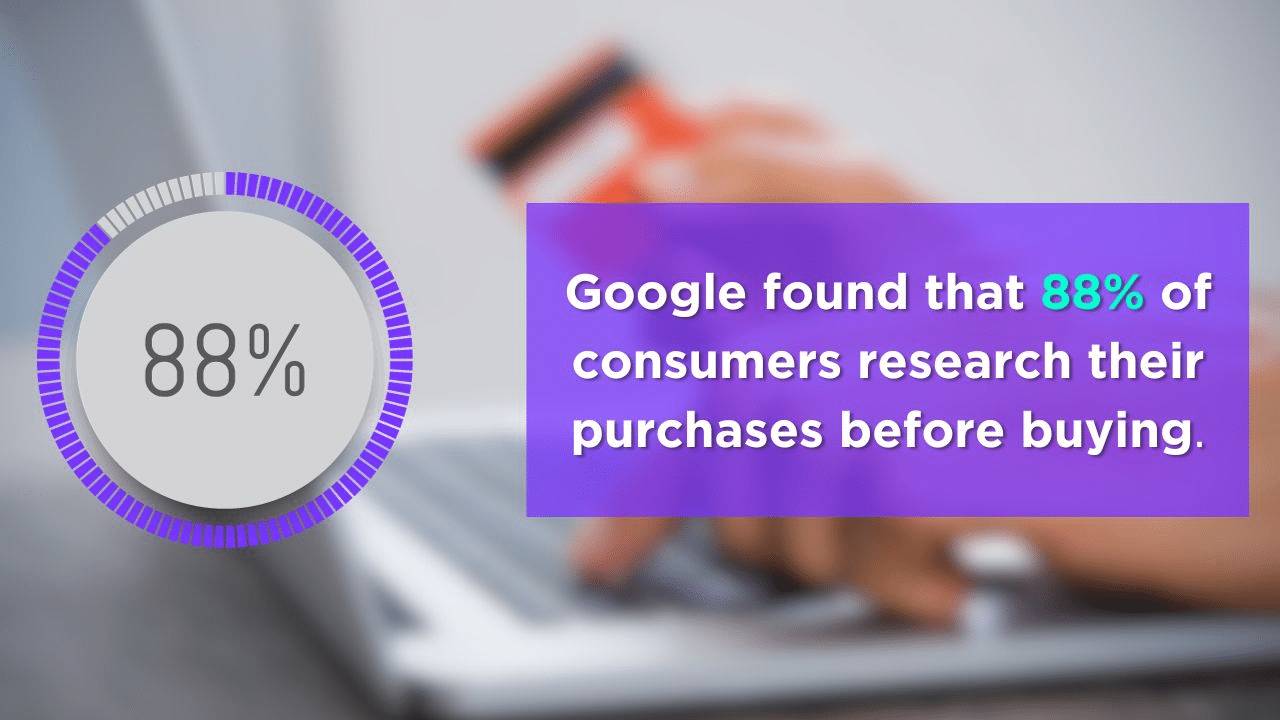
The study found that a whopping 88% of consumers research their purchases before buying, consulting roughly 10 different sources to inform their decisions.
Much like machine learning is disrupting content generation as we know it today, this study shook up marketers’ perceptions of how and why consumers buy.
If their customers were turning to search engines, then marketers needed to be a part of those conversations with accurate, timely, relevant information fueling their content marketing machines.
They also needed to make sure they were ranking for the most relevant keywords to pop up in front of their target customers at their moments of truth.
When Content Marketing Priorities Shifted
Around the same time, in the early 2010s, Google changed its algorithm to discourage keyword stuffing in an effort to present searchers with the most helpful content that matched their search intent.
Since then, Google has continued to prioritize content in search engine results pages (SERPs) that’s high-quality and relevant.
Along the way, we’ve witnessed the rise of social media, video content, and hyper-local content that meets searchers even more precisely at their moments of truth.
Now, with the introduction of AI and machine learning, content marketing teams have an opportunity to automate manual processes and create quality, personalized content in a fraction of the time.
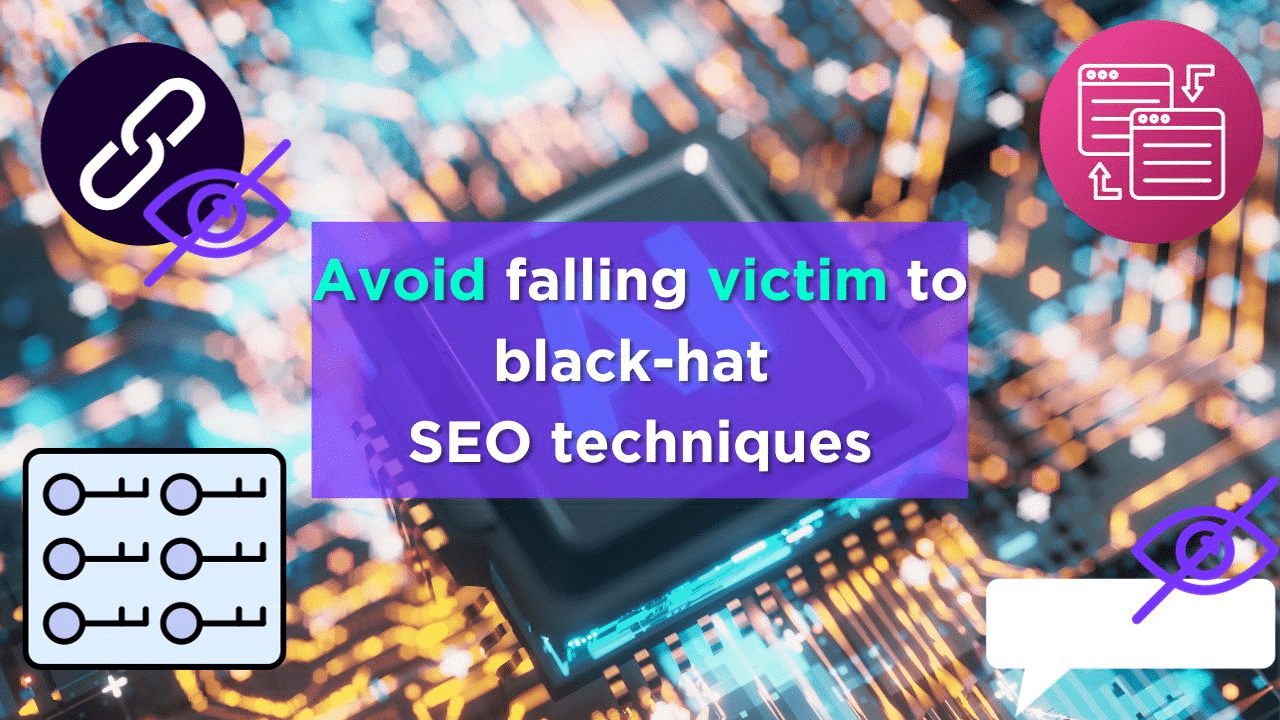
Meanwhile, they must tread carefully to avoid dehumanizing their content and avoid falling victim to black-hat SEO techniques that violate Google’s search policies — including not only keyword stuffing but also sneaky redirects, cloaking, hidden text and links, thin affiliate pages, and machine-generated traffic.
The Influence of Machine Learning Today
Notably, Google’s official stance on AI-generated content is that AI can fit into a content strategy and even “transform the ability to deliver helpful information.”
The search giant rewards original, high-quality content that demonstrates expertise, experience, authoritativeness, and trustworthiness (aka EEAT) — however it’s produced.
At the same time, Google frowns upon content that’s spammy or auto-generated in the sense that the content lacks human intervention.
Examples might include text that’s been paraphrased or content that’s been copied and pasted from another site without adding original writing or citing the original source.
Yes, you heard it here first: We still need humans.
That being said, let’s take a look at how AI and machine learning can turn into a powerful content marketing tool as long as you use it correctly.
Why Use AI-Powered Marketing Tools?
Clearly, content creators cannot simply ChatGPT their way to great content.
It takes a talented writer to conceptualize out-of-the-box AI marketing campaigns, research ideas, and present information thoughtfully in ways that drive customer engagement and build customer relationships.
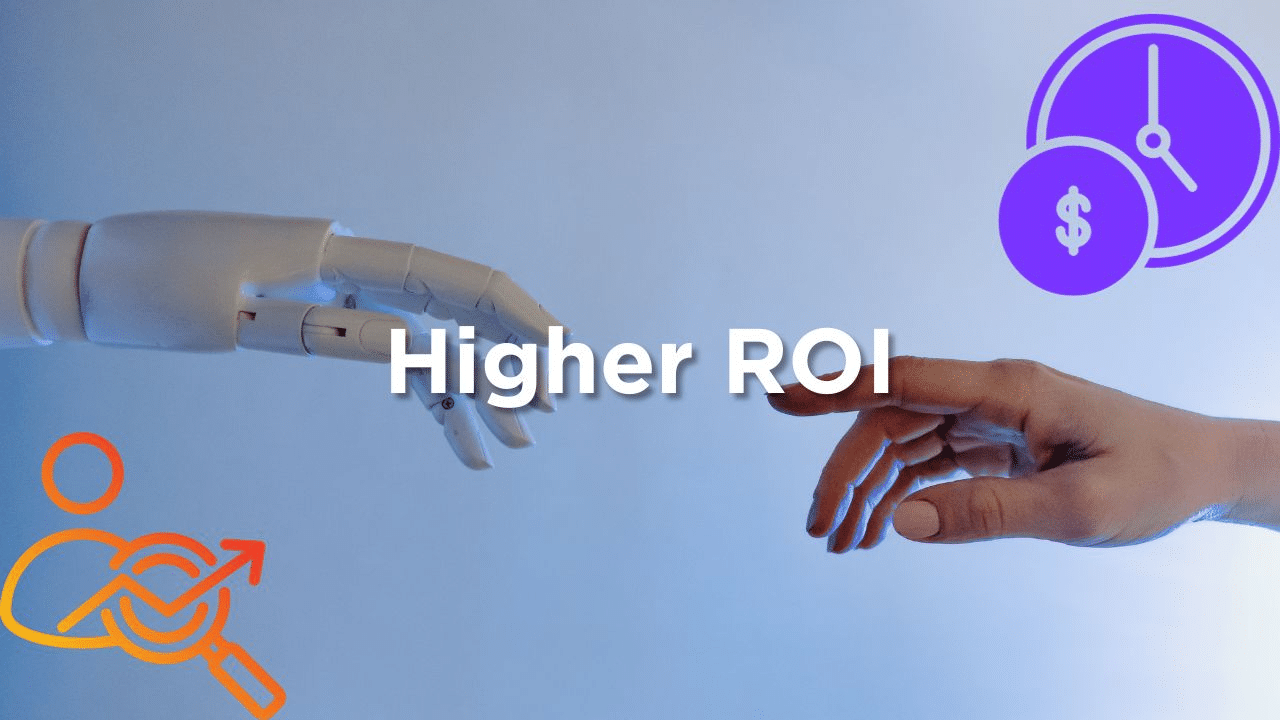
However, using AI marketing technology can give marketers more time through automation, deeper insights into their audiences, and a greater ability to optimize campaigns — all of which can add up to a higher return on marketing investment.
Here are some of the primary reasons to embrace AI in marketing:
AI Can Automate Research
To create successful campaigns, you need market research to identify your target audience’s needs, wants, and pain points.
Forget about manual methods like researching “people also asked” questions on Google or conducting user surveys, focus groups, and questionnaires.
With marketing AI technology and machine learning, you can use automation to detect and collect customer data based on their interactions with your company.
Those interactions could include calls, emails, social media comments, inbox questions, and more — and artificial intelligence in marketing can help sort that data into actionable insights for revenue-generating digital marketing campaigns.
Automating these processes makes AI a powerful social media tool that can effortlessly transform your online content strategy.
AI Can Inform Your Keyword Strategies
Machine learning has become more advanced in natural language processing (NLP), capable of processing large volumes of written or spoken text in real time.
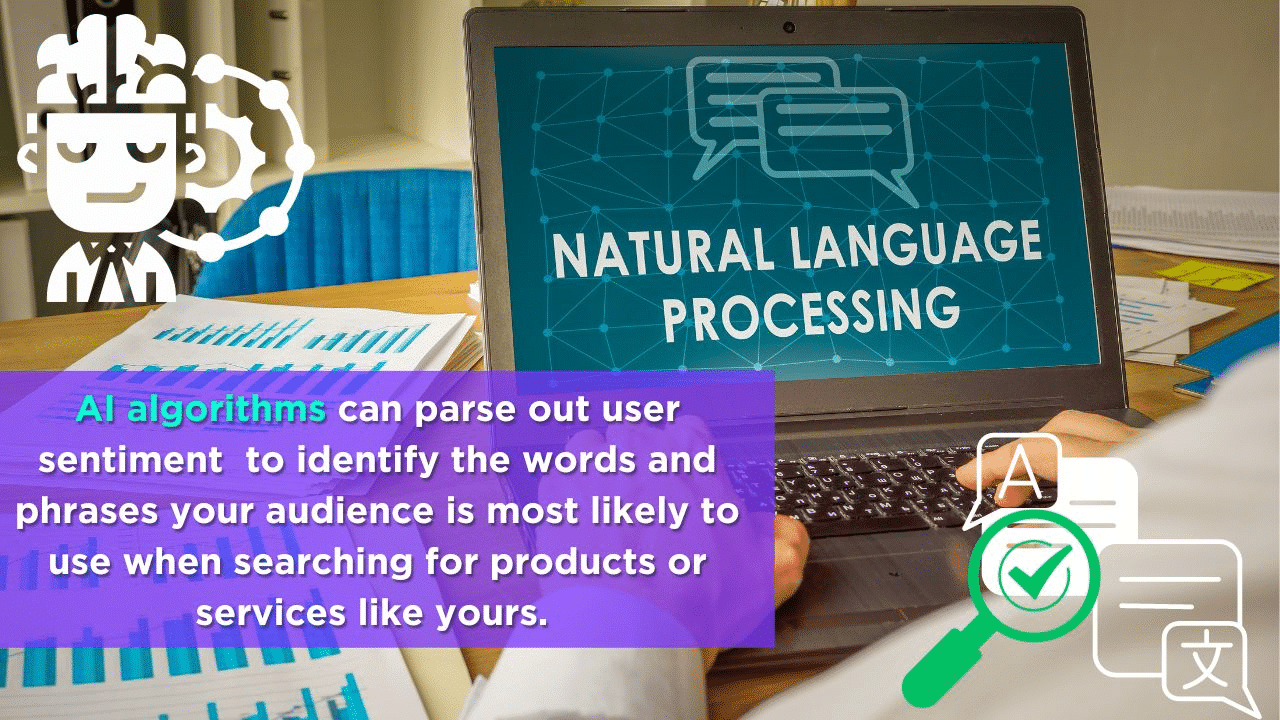
Through deep learning, AI algorithms can parse out user sentiment and intent to identify the words and phrases your audience is most likely to use when searching for products or services like yours.
So rather than guess at keywords, you can use an AI platform for simple task automation.
As if by magic, you’ll be able to identify the most relevant keywords for your audience, helping you map out keyword frequency and market trends to fine-tune your SEO strategy.
AI Can Accelerate Your Content Creation
We’ve already established that purely AI-generated content is not a wise content marketing tactic.
However, your digital marketing efforts can incorporate AI to streamline the process of creating content.
AI marketing tools like ChatGPT shine in terms of generating blog topics and blog post outlines, discovering popular search terms your audience is using, and using deep learning to understand their preferences over time.
The better your prompts, the more AI algorithms will get to know your target audience and historical data.
You can take all that data and turn it into meaningful, relevant, human-generated content your audience — and search engines — will love.
AI Can Help You Create Personalized Content
Through customer data collection and predictive analytics, marketing AI technology can predict customers’ needs and provide tailored offers and recommendations.
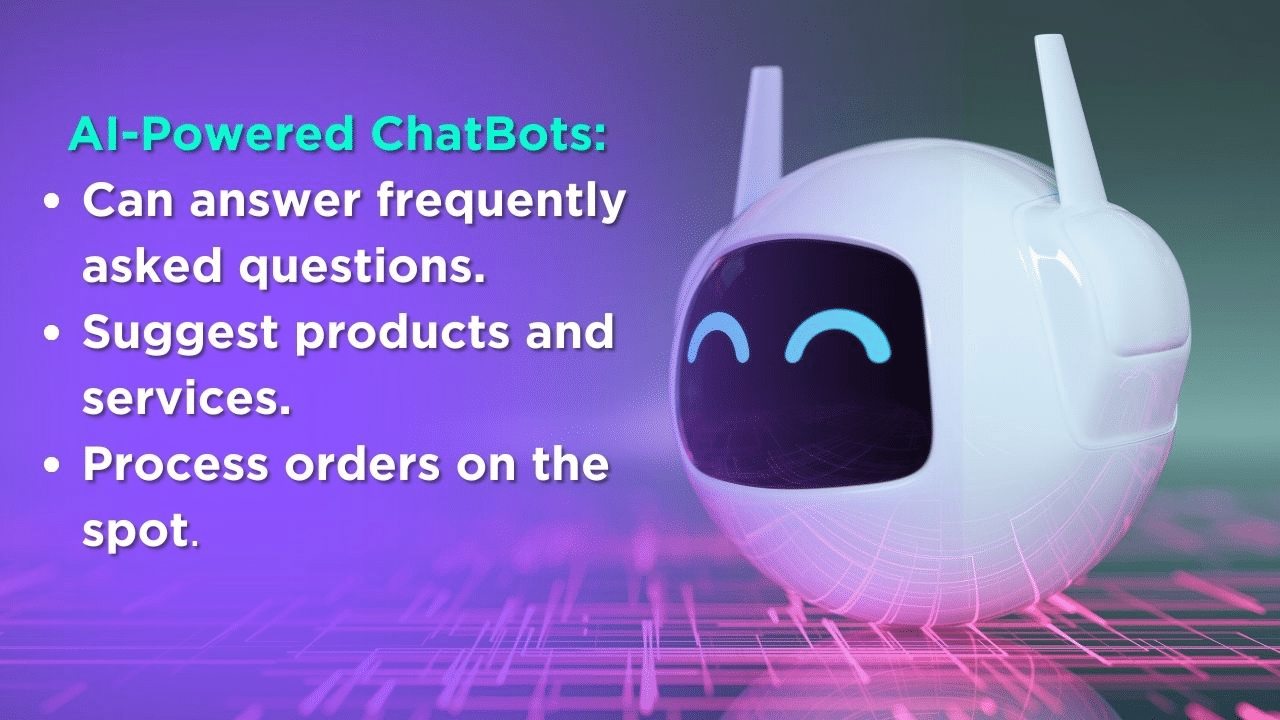
AI-powered chatbots can answer frequently asked questions, suggest products and services, and process orders on the spot.
This personalized service builds customer satisfaction and loyalty, driving your sales and retention efforts on autopilot.
AI Saves Time on Campaign Creation
Whether creating Google ads, programmatic advertising, landing pages, or social media posts and ads, AI can generate campaign ideas, outline sections or topics, and suggest content using integrated machine learning apps.
With such automation, AI marketing teams can focus on honing content to meet their marketing objectives while AI-powered tools handle the heavy lifting.
Related read: Pictory and ChatGPT – The Best AI Combination for Your Content Creation
Types of AI Marketing Tools for Content Marketing
Are you ready to level up your content marketing programs with the help of marketing AI?
With the right tools at your fingertips, you can turn your marketing department into an AI engine powered by human intelligence, talent, and passion.
The following types of AI marketing tools can help you with everything from email subject lines, automated email marketing campaigns, and sales funnel copy to customer engagement, customer insights, and strategic marketing decisions.
SEO Research and Optimization
With the help of AI-powered SEO tools, it’s possible to research the most relevant keywords for your target audience.
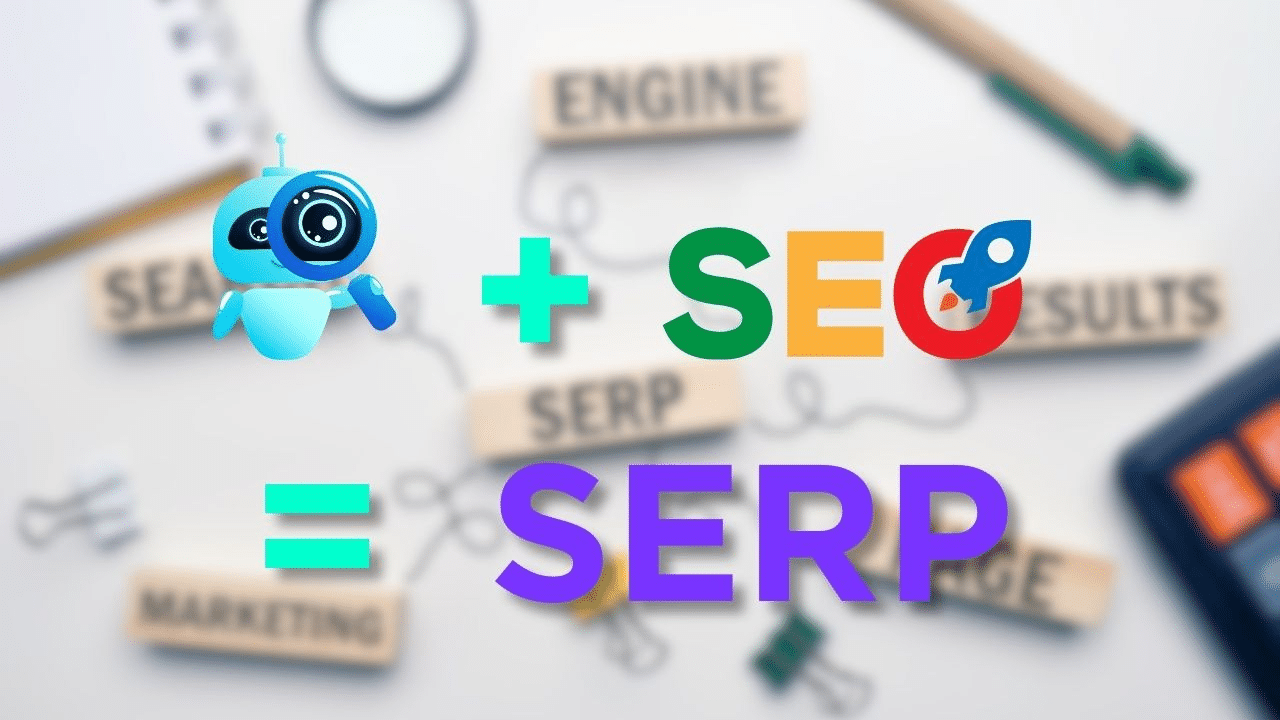
As you start incorporating these keywords into your content, you can further use AI SEO tools to help your site rank higher in SERPs.
Such tools can help identify any gaps in your keyword strategy both as you write and after you’ve published content.
From keyword research and on-page optimization to data analysis and competitive intelligence, AI SEO tools excel in improving your search campaigns.
AI-Powered Writing Assistants
Anyone who experiences writer’s block can appreciate AI-powered writing assistants.

Provide a kernel of an idea, and such tools can outline ideas, improve content quality, and boost productivity.
In addition to helping draft content briefs, social media content, captions, website content, and other content types, AI writing assistants can help with quality control.
AI-powered grammar checkers go beyond checking for dangling modifiers, misspellings, and missing commas.
AI writing assistants can also identify inconsistencies in content, reword sentences for clarity, check for plagiarism, and suggest ways to improve engagement and delivery with your desired audience.
There are plenty of factors to consider when choosing an AI writer to help with your content marketing, as different tools are suited to different kinds of content.
AI-Image Generation and Optimization
If a picture is worth a thousand words, it’s likely worth even more in content marketing.
Engaging visuals tell a story and augment written text to draw readers into the content and encourage them to stick around.
With AI image generation and optimization, it’s easier than ever to generate images, infographics, and graphic designs that align with your content and overall marketing goals.
What’s more, AI image tools can optimize images for SEO, helping to add captions and alt text, improve load times, and create a better user or customer experience.
AI-Powered Video Editing and Creation
As with AI image tools, AI video editing and creation technology can simplify the process of creating, editing, and uploading videos to various platforms.
Whether you want to add video to a landing page, improve your social media presence, or turn written content into videos, AI marketing tools can automate the entire process.
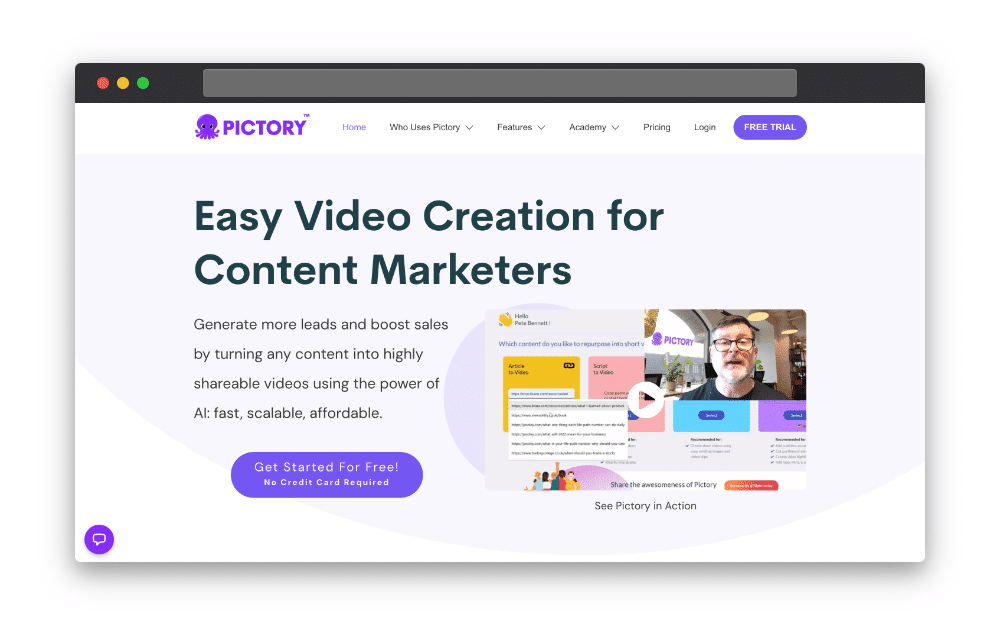
For example, Pictory is an AI tool for video generation and editing that empowers content marketers to improve SEO, generate more leads, and boost sales through engaging videos.
It’s fast, scalable, and affordable, and it’s one of the easiest ways to repurpose content in a highly shareable format.
KPI Trackers Ran by AI
Key performance indicators (KPIs) are the benchmarks that tell you whether your content strategy is working and what needs to change.
Examples of KPIs include organic website traffic, article views, social media engagement and reach, conversion rates, and ranking for desired keywords.
Your KPIs may vary based on your overall marketing objectives or specific campaigns.
With the right measurement tools, you can use analytics to monitor your content performance in real-time, analyze and predict trends in customer behavior, and discover actionable marketing insights.
You can use this high-quality data to refine content topics, shift your distribution channels, improve calls to action, and better meet your audience’s needs.
Incorporating AI Tools Into Your Marketing Strategy
The point of AI in marketing is to enhance efficiencies and results for the people responsible for conceptualizing, creating, launching, monitoring, and improving campaigns.
There are many moving parts involved with content marketing, each no more important than the next, so it’s important to identify how AI can help with each step of content creation and optimization.
Below are some top considerations for incorporating AI tools into your content strategy.
Assessing Your Current Strategy
Take inventory of the strengths and weaknesses in your current strategy to identify areas where AI can help streamline processes.
Evaluate different types of content strategy opportunities that can help you free up time, reduce costs, enhance the customer journey, and improve results without investing in more staff or costly resources.
Setting Clear Objectives for Your Content

Setting clear, measurable objectives will help you map out what actions to take for success.
And setting content marketing goals that align with your business goals is crucial to a successful marketing strategy.
In the marketing realm, focus on goals that are SMART — specific, measurable, achievable, realistic or relevant, and timely or time-bound.
For example, if you want to drive more website traffic, your SMART goal might be that you’ll publish four blog posts per month, distribute them on social media and other platforms, and track website traffic.
Selecting the Right AI Marketing Tool
Based on your strategy analysis and goals, you can then select an AI marketing tool that will be most helpful in achieving your objectives.
Start with a shortlist of tools for each marketing function, from SEO research and video creation to KPI tracking.
Then, test out different tools, taking advantage of any free versions or free trials, to evaluate which ones will best meet your needs.
You can also read user reviews on platforms like G2 and Capterra to see what real users think of the product.
Implementation and Integration of Your AI Tools
Any new tool takes time to implement in organizations.
Expect to dedicate time and resources toward onboarding onto an AI platform, getting trained in how to use it most effectively, and optimizing processes with the help of AI.
The good news is that because AI is so ubiquitous, it shouldn’t take much convincing to get your team on board.
Building a New Content Strategy Around AI
If you’ve been used to doing things a certain way with your content strategy, now is the time to shake things up and begin incorporating AI technology.
Keep the following framework in mind as you build a new content marketing machine fueled by the latest AI marketing apps and platforms.
Crafting a New Content Strategy
To create a new strategy, define your objectives, whether that’s increasing website traffic, generating leads, or building brand reputation. How AI can help:
Identifying buyer personas and their preferences and behaviors throughout the customer journey
Conducting keyword research that identifies words and phrases your target market uses
Generating competitive analysis reports to reveal what’s working well for your competition
Content Ideation and Planning
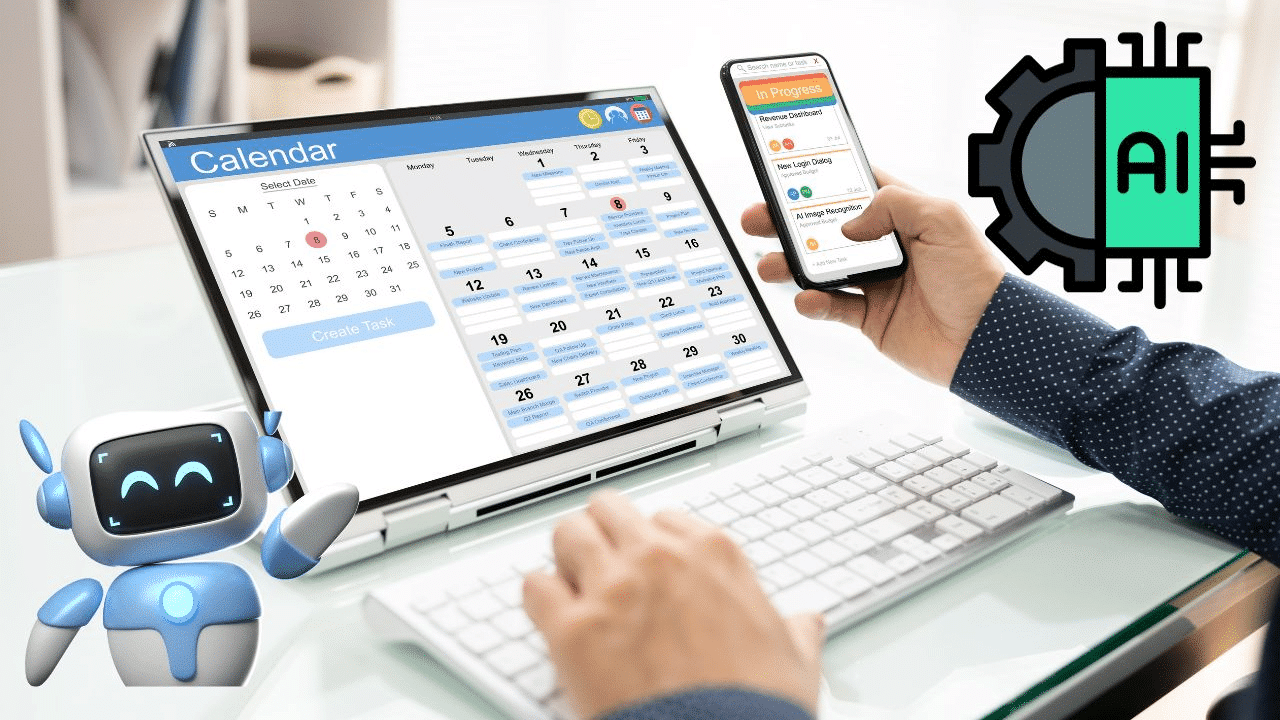
Lean on AI for generating content ideas, planning editorial calendars, and discovering trending topics.
How AI can help:
Formulating content pillars that revolve around your target customers
Creating a variety of content that’s deemed engaging and useful by search engines
Content Creation and Publication
When it comes time to create and publish content, AI can assist with outlining content, automating tasks, and publishing content at a cadence that works for your marketing goals. How AI can help:
Generating topics and article outlines
Editing content for style, grammar, punctuation, spelling, and other issues
Scheduling content on various platforms at optimal times
Monitoring and Optimization
With AI-driven analytics, you can consistently monitor performance and discover opportunities to improve.
How AI can help:
Providing insights into customer behavior and engagement and the overall customer experience
Recommending SEO optimization strategies such as using more keywords, adjusting content length, or adding headers and meta descriptions
Future Trends in AI and Content Marketing
As artificial intelligence technology evolves, it will only become more robust and useful, provided marketers continue to add a human touch to campaigns.
The key is to use AI as an assistant and not a replacement for cognitive reasoning and insights.
Otherwise, you risk creating content that smacks of machine generation and lacks personalization and creativity.
Looking forward into the months and years ahead, you can predict that the following five key trends will influence AI technology and the customer journey:
Personalization of AI in Content Marketing
AI in marketing can help marketers collect and analyze volumes of customer data to identify buyer preferences and behaviors.
Using data analytics, marketers can tailor content for specific audiences, helping them produce more relevant and engaging messages and product recommendations.
Natural Language Generation
Natural language processing will improve as AI apps absorb more data and feedback to better understand user needs and intentions.
Videos and Images
AI-generated video and image tools will continue to evolve and solve the problem of creating assets at scale.
Pictory is one such tool leading the charge for content marketers seeking easy-to-use, powerful tools for creating video content.
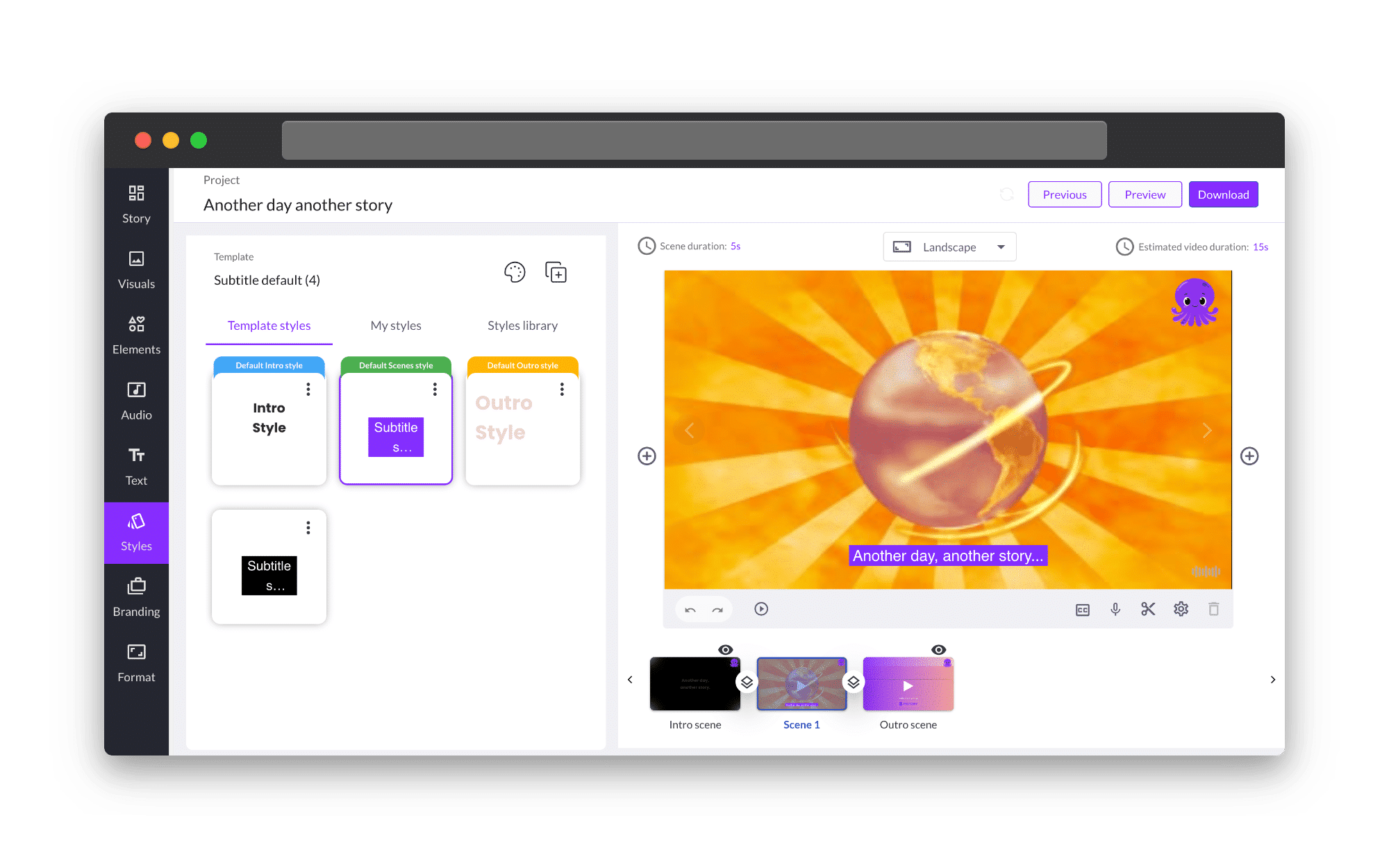
With customizable templates and AI-powered image selection, creating professional videos quickly is simple.
Related read: Make Exciting Video Intros and Outros With Pictory
Predictive Analytics
Because AI can collect volumes of data from websites and apps, it’s capable of finding patterns and predicting users’ future actions.
This information can help marketers optimize campaigns, Facebook and Google ads, and more.
AR and VR
With the help of AI in augmented reality and virtual reality, marketers can engage customers in virtual product demonstrations, dynamic pricing, and immersive, personalized shopping experiences based on purchase history, behaviors, and other factors.
What to Do Next with AI in Your Marketing Strategy
As the content marketing and artificial intelligence worlds continue to collide, keeping up with the latest trends and insights will help you make the most of new technologies.
Remember, too, an AI marketing strategy that works today might not work tomorrow, and your content strategy needs to evolve with the times.
As you get started with AI in marketing, keep in mind that even smaller content marketing teams can take advantage of AI marketing to optimize workflows, increase their content output, and better engage with their customers.
Begin with the tools that will make the most immediate impact on your team, and add more tools as your needs change.
Like hiring a virtual assistant, utilizing AI technologies should take day-to-day tasks off your plate, helping you increase efficiencies, enhance customer insights, and ramp up your marketing efforts.
Soon you’ll be able to free up your time for the most high-value marketing activities and focus on the fun part of marketing: engaging with your valued customer base and creating a delightful customer experience.
When it’s time to build your video content marketing strategy, Pictory is the online video editor you need in your arsenal.
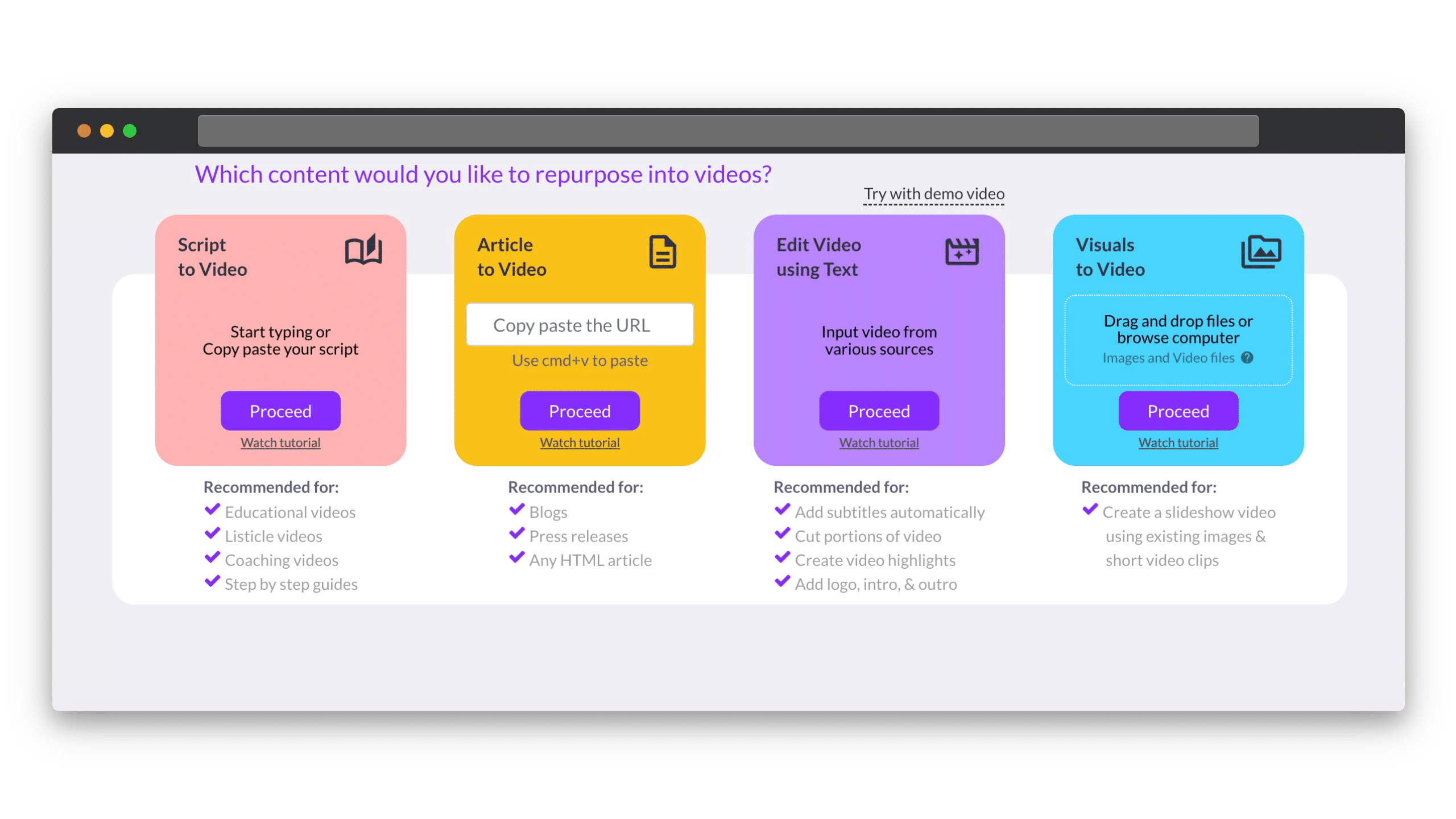
No bulky software download. No expensive freelancers. No video editing experience needed.
Just quality video content that will convert users fast.
Sign up for a free trial, or upgrade your current Pictory plan today, to start using the best AI video generator in your marketing.

